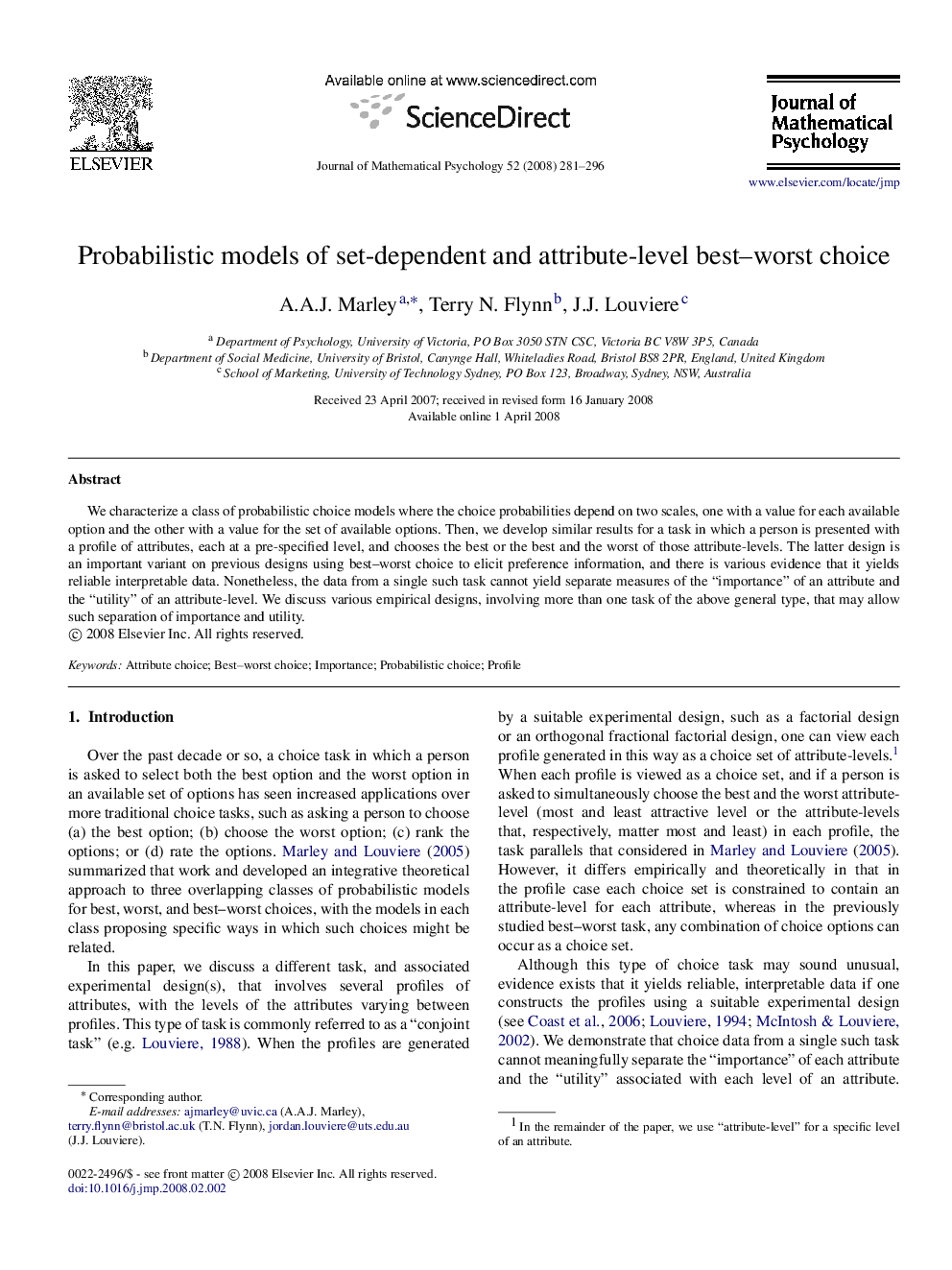| Article ID | Journal | Published Year | Pages | File Type |
|---|---|---|---|---|
| 326360 | Journal of Mathematical Psychology | 2008 | 16 Pages |
Abstract
We characterize a class of probabilistic choice models where the choice probabilities depend on two scales, one with a value for each available option and the other with a value for the set of available options. Then, we develop similar results for a task in which a person is presented with a profile of attributes, each at a pre-specified level, and chooses the best or the best and the worst of those attribute-levels. The latter design is an important variant on previous designs using best-worst choice to elicit preference information, and there is various evidence that it yields reliable interpretable data. Nonetheless, the data from a single such task cannot yield separate measures of the “importance” of an attribute and the “utility” of an attribute-level. We discuss various empirical designs, involving more than one task of the above general type, that may allow such separation of importance and utility.
Related Topics
Physical Sciences and Engineering
Mathematics
Applied Mathematics
Authors
A.A.J. Marley, Terry N. Flynn, J.J. Louviere,
